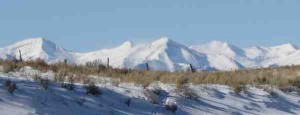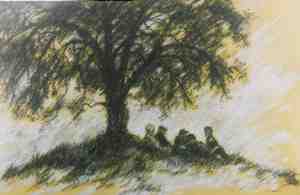Review by Ed Quillen
Science Fiction – February 2008 – Colorado Central Magazine
Plague Year
by Jeff Carlson
Published in 2007 by Ace Books
ISBN 044101514X
MORE THAN 300,000 people live in Leadville, the heavily fortified capital of the United States. There aren’t many people anywhere else in the country, though, because at least 85 percent of humanity has succumbed to a plague brought on by nano-technology run amok.
That’s the situation in Plague Year, a science-fiction novel set in the near future. Scientists in the San Francisco Bay area develop a microscopic self-replicating machine that holds promise for curing cancer. The nano-critters get loose, and kill all of the warm- blooded life they encounter.
So more than 5 billion people die, along with most mammals and birds. The only limitation on the nanos is that they cease to function where the atmospheric pressure is less than 70% of the average pressure at sea level. The line between life and death is the topographic map contour at about 9,600 feet. But safe elevations can be a bit higher or lower in response to changing barometric pressure.
SINCE SURVIVAL is possible only at high elevations, Leadville becomes the nation’s capital, and the Colorado Mountain College Timberline Campus houses America’s nanotech lab where researchers desperately seek an antidote to the flesh-killing nanos. Other clusters of humans abide in the high Sierras, the Alps and the Tibetan Plateau.
The leading researcher, however, is aboard the Space Shuttle Endeavor — which can’t stay up indefinitely, and Highway 24 north of Leadville has to serve as a landing strip.
That’s the way it is in Plague Year, and author Jeff Carlson does a pretty good job of consistently imagining a world in this situation. Below 10,000 feet, where some survivors must venture briefly for food, insects dominate. Germany, France, and Italy fight for the Alps, while Russia again invades Afghanistan.
The novel has human nature at its best — and worst, with gruesome scenes of cannibalism. I must confess that although I was fascinated by the premise, I had trouble identifying with any of the main characters. As in most novels, especially of an apocalyptic nature, I needed someone to root for, but I never found that character.
And I was put off the moment I opened the book; one of its first pages has a map of the Leadville area. It’s not a fanciful map entitled to some poetic license, for it has proper contour lines, highways, railroad tracks and the Arkansas River. But it shows the Continental Divide running along the crest of the Mosquito Range on the east side of Leadville, when in fact it runs west of Leadville — the Mosquito Range divides two Eastern Slope rivers, the South Platte and the Arkansas.
Maybe that’s just nitpicking, especially for a novel, but such carelessness bothers me.
For a feel of the novel, here’s part of a description of Leadville:
“There had never been many trees at this elevation — absolutely none, now, all burned for fuel during the first winter — and Leadville was a gathering of red brick. The white spire of a church jabbed heavenward. Anchoring main street were two heritage museums, the courthouse, and a well-preserved opera theater built in 1870 [actually, 1879] , and the low buildings and wide boulevard would always have the shape of a frontier town. It didn’t matter that these structures, and the shops and breakfast cafes, had been turned into command centers for civil, federal, and military staffs. It didn’t matter that sand-bagged firing positions cluttered the sidewalks. This place, already so laden in history, would survive to repopulate the continent and become America again.”
IF YOU LIKE modern science fiction, you may enjoy Plague Year. It explores some intriguing premises. But I found this tale of a ruthless world where heroes and villains alike have to prey on other humans and eat their flesh in order to survive to be too gruesome for my taste. Likewise, I never connected with any of the characters, especially the heroes, whose arrogant determination to stay on top struck me as even more distasteful than Donald Trump’s.
But Carlson’s world was vivid and imaginative, so I suspect that many Sci-fi fans will disagree with me and find this horrifying world thoroughly fascinating.


